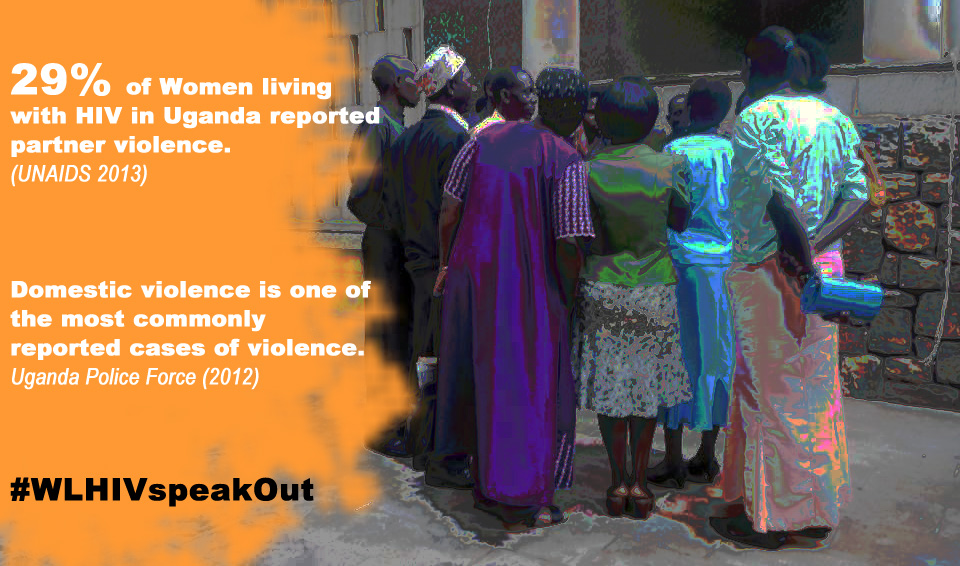“We are told that it is not good to get pregnant when you are HIV positive, so when we get pregnant, we abort, we fear…and many have died, even a few weeks ago a woman died after abortion” (Woman living with HIV, Busia Uganda).
Violence against women living with HIV is on the rise. Since ICWEA started implementing the Sexual and Reproductive Health & Rights (SRHR) programme in 2010, reports from members indicate increased cases of violence against women living with HIV because of their HIV status.
Activists have paid a lot of attention to violence against women and girls but there has been little emphasis on the intersection between HIV&AIDS and violence against women. Women living with HIV have been killed, tortured and denied access to public services as a result of their HIV status. In Sub Saharan Africa, women living with HIV have reported violence from healthcare workers ranging from abuse, denial of services, coerced and forced sterilisation and forced abortion.
Services are not only inefficient but also not appropriate especially for women living with HIV. For example, when a woman is raped, in most cases she is treated as just a rape victim and normally not given the much-needed Post Exposure Prophylaxis (PEP); women living with HIV queue in hospitals for long hours. Service providers and employers stigmatize and discriminate against women living with HIV.
It is important to sensitize women about their right to prevention, treatment and where to go to receive HIV and Sexual Reproductive Health and Rights services. There is need to pay specific attention to policies, legislation and role of the state in fueling Violence against Women. In Uganda for example the recently enacted laws like the HIV Prevention and AIDS Control ACT 2014, the anti-pornography ACT and the Public Order Management ACT will definitely lead to increased violence against women as has already been witnessed.
Facts and numbers:
- 40 – 60% of women in East Africa have experienced violence (UNAIDS 2010)
- The Kenya Stigma Index report indicated that 6% of Women living with HIV (respondents had been coerced or/and forced into sterilization, while in Uganda the Stigma Index report (2013) indicated 11% had been coerced or/and forced into sterilisation
- While 29% of Women living with HIV in Uganda reported partner violence (UNAIDS 2013), the Uganda Police Force Annual report (2012) indicates that domestic violence is one of the most commonly reported cases of violence.
- In Namibia, 46 of the 230 women stated they had been coerced or forced into sterilization.
“The hospital staff said to us, you are not supposed to have more kids because there is no one supporting you. You cannot support yourself or your kid so it is best you are sterilized” – (Woman living with HIV, Namibia)
- In Uganda, cases of violence against women have also escalated in the recent years:
“We encourage HIV positive women not to get pregnant again. Actually we do not chase them when they become pregnant again…usually when they come back, they feel embarrassed so when I see such clients, I ask my colleague to attend to her…others simply do not come back” (Service Provider, Busia Uganda).
We cannot get to 3 Zeros (Zero new HIV infections, Zero stigma and discrimination and Zero new deaths) if Women living with HIV continue experiencing Sexual Reproductive health and human Rights violations.
Join the Campaign: #WLHIVspeakOut
During this year’s 16 days of activism, ICWEA will focus on amplifying the voices of women living with HIV at all levels on their understanding, perceptions and what forms of violence they experience or observe in their communities – share your story! Write to us.
Email: admin@icwea.org
Twitter: @ICWEastAfrica
Facebook: https://www.facebook.com/IcwEasternAfrica
Hashtag: #WLHIVspeakOut
To participate in the SMS campaign, please send a message, “Please add me to the campaign” to the Telephone number that corresponds with your country. As soon as the message is received, you will begin receiving messages and where possible send us messages too.
| Country | Phone number |
| Burundi | +25779975297 |
| Kenya | +254722749603 |
| Rwanda | +250788530468 |
| Tanzania | +255755761905 |
| Uganda | +256774256304 / +256772695133 |
Download the fill concept here: [Download not found]




